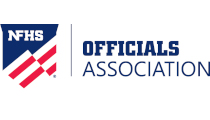In Orlando, Florida, Rob Mauws gears up for another high school soccer season. Having been with the High School Soccer Officials of Central Florida (HSSOCF) for seven years, he knows what it takes to be the best. After working another grueling fall college season, Mauws is able to focus now on the high school level. His goal is to be on a playoff crew, and hopes to be working a state semifinal or championship game at the end of the season.
But what motivates Mauws to return to the HSSOCF year after year? “Simply, we embrace them,” said Don Dodge, president of the HSSOCF. For the 2012-13 school year, 147 officials in that association were returning members. This number equates to around 83 percent of the total number of officials in the HSSOCF.
“We are customer-centric in how we deal with everything,” Dodge said. “We do not fine them for missing meetings. Instead, we do what we can to make them want to attend.” For example, FIFA Assistant Referee Mark Hurd, and Orlando City Head Coach Adrian Heath were guest speakers this past season. “We are doing everything we can to create an environment the officials will want to be a part of,” Dodge noted.
One of the challenges facing officials associations is the initial recruitment. Many associations have contacts with youth leagues, and help mold the individual to be a quality official. “It’s a year-round effort,” said Adam Bates, assignment officer with the Orange Baseball Association (OBA) in Orlando. “We work with local assignors of youth leagues to help recruit for the future as well. Word of mouth is one of our best recruiting tools in Central Florida,” he noted. In addition, the core officials of OBA help recruit when they do assignments outside of high school baseball.
With baseball being a year-round sport in Florida, in addition to the college conferences playing at the same time as the high school season, one might think that would pose a problem for the high school associations. “A lot of the high school baseball in this area is as good as some of the lower level college baseball games that our college guys work during the season,” noted Bates. He added that one thing that helps the officials that work both college and high school is the timing of when schedules are released. For Florida Collegiate Umpires (FCU), those schedules are released in January. “I work with the college assignors and give our guys assignments on days they are not working college ball,” he said. “We did not lose any guys working for FCU this year.”
Dodge echoes the importance of retaining the college officials for high school contests. “College officials are some of our best high school officials, so we want them to be doing both,” he said.
Not only are officials working both high school and collegiate levels, but another source of recruitment is at colleges. Every year at the University of Florida, 250 intramural referees learn the games of basketball, flag football, volleyball, and softball. “We highly encourage our officials to join local associations.” said Marty Dempsey, Coordinator for Competitive Sports at UF.
“Our officials take what they’ve learned in our program, and go into working high school games much more prepared than someone without that experience,” he added.
Youth leagues, college intramural sports programs, and recreation sports are just a few ways to recruit officials. The retaining of the officials might be more of a challenge. Creative ideas, informative meetings, and the possibility of working postseason games will help associations retain quality officials.
Cristina Broska
Cristina Broska is the former supervisor of officials for the Florida High School Athletic Association.
Most Recent Articles
- nfhs news NFHS Learning Center Delivers 25 Millionth Course
- Track & Field/Cross Country article Effective Communication with Athletes and Coaches
- nfhs news Player Equipment Changes Highlight 2025 High School Football Rules Revisions
- Player Equipment Changes Highlight 2025 High School Football Rules Revisions
- nfhs news Judgment Call on Second Contact Eliminated in High School Volleyball






